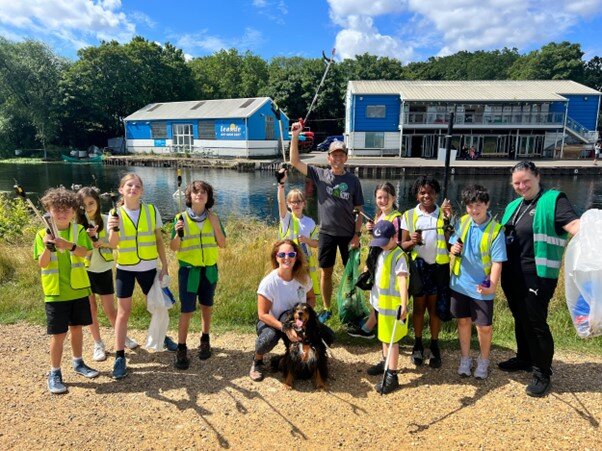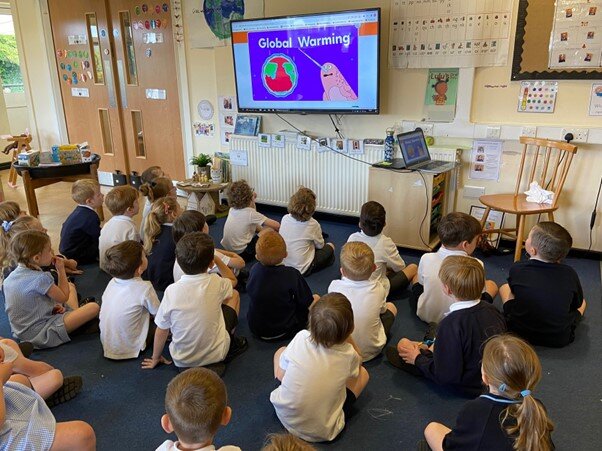
We aim to give food for thought as well as inspiring your creativity and
providing practical ideas you can’t wait to implement in your own settings!
Empowering Schools: Navigating the
Path to Sustainability

In April 2022, The Department for Education (DfE) unveiled its strategy aimed at enhancing sustainability in schools and addressing the challenges posed by climate change by 2030. While schools aren't presently mandated to report their progress towards sustainability, it's prudent to begin preparations for forthcoming changes. The strategy could inevitably influence various facets of school operations, from curriculum development to procurement processes and infrastructure management.
Embracing sustainability isn't just about environmental responsibility; it's also a strategic move that can yield substantial cost savings, particularly in the face of escalating expenses and budget constraints. By implementing measures to reduce energy consumption and minimise waste, schools can not only contribute to a greener future but also improve their financial resilience.
The DfE's strategy emphasises the importance of leadership from the top-down, with headteachers and governors championing sustainability initiatives. It calls for curriculum integration, weaving environmental themes into subjects like science, geography, and even maths. And it underscores the significance of greening school operations, from energy efficiency to waste reduction.
Next Steps
But where to begin? That's the question plaguing many educators. The first step is to cultivate a culture of sustainability within the school community. This means starting conversations, raising awareness, and inspiring action. One practical way to kickstart this journey is by forming a sustainability committee comprising of staff, students, governors, and parents. Together, assess the school's current environmental impact, set goals for improvement, and devise an action plan.
You're not required to have a sustainability policy but having one will give you a clear picture of the aims and values of the school, helping you to think about how sustainability is embedded into curriculum learning and enabling you to green school operations. This will articulate your school's commitment to environmental stewardship, outlining clear goals, strategies, and role responsibilities to guide your sustainability efforts.
Practical Tips
A Sustainability Whole-School Audit: Conducting a comprehensive assessment of your current sustainability practices across all facets of your school, from curriculum integration to infrastructure management, to identify strengths, weaknesses, and areas for improvement.
A Sustainability Teaching Audit: Evaluating the extent to which sustainability is integrated into your curriculum and teaching practices, assessing the depth and breadth of coverage across different subjects and grade levels. Give staff time to explore sustainability resources that are available.
Improving Sustainability Confidence: CPD resources for staff and opportunities to train, to empower staff with the knowledge, skills, and tools needed to effectively integrate sustainability into their teaching practice and daily operations.
Creating a Sustainability Culture: Mobilising your school or trust community to embed environmental sustainability into your cultural vision, strategy, and day-to-day practices, aligning with the DfE's sustainability strategy and fostering a culture of sustainability.
Researching Good Practice: Exploring real-life examples and best practices of schools successfully integrating sustainability into their curriculum, highlighting innovative approaches, challenges faced, and lessons learned.
Empowering student voice: Providing opportunities for students to take ownership of sustainability projects, express their ideas, and become advocates for positive change in their school and community.

Every small step we take today contributes to a brighter, greener future for our students and communities. By embracing the DfE's Sustainability Strategy and implementing practical measures, we not only fulfil our responsibility as educators but also empower our students to become catalysts for positive change in the face of climate challenges. Together, let's cultivate a culture of sustainability, inspiring action and fostering resilience for generations to come.
With many thanks to Kelly Vanaudenaerde for writing this article.
Head of Education at Earth Cubs